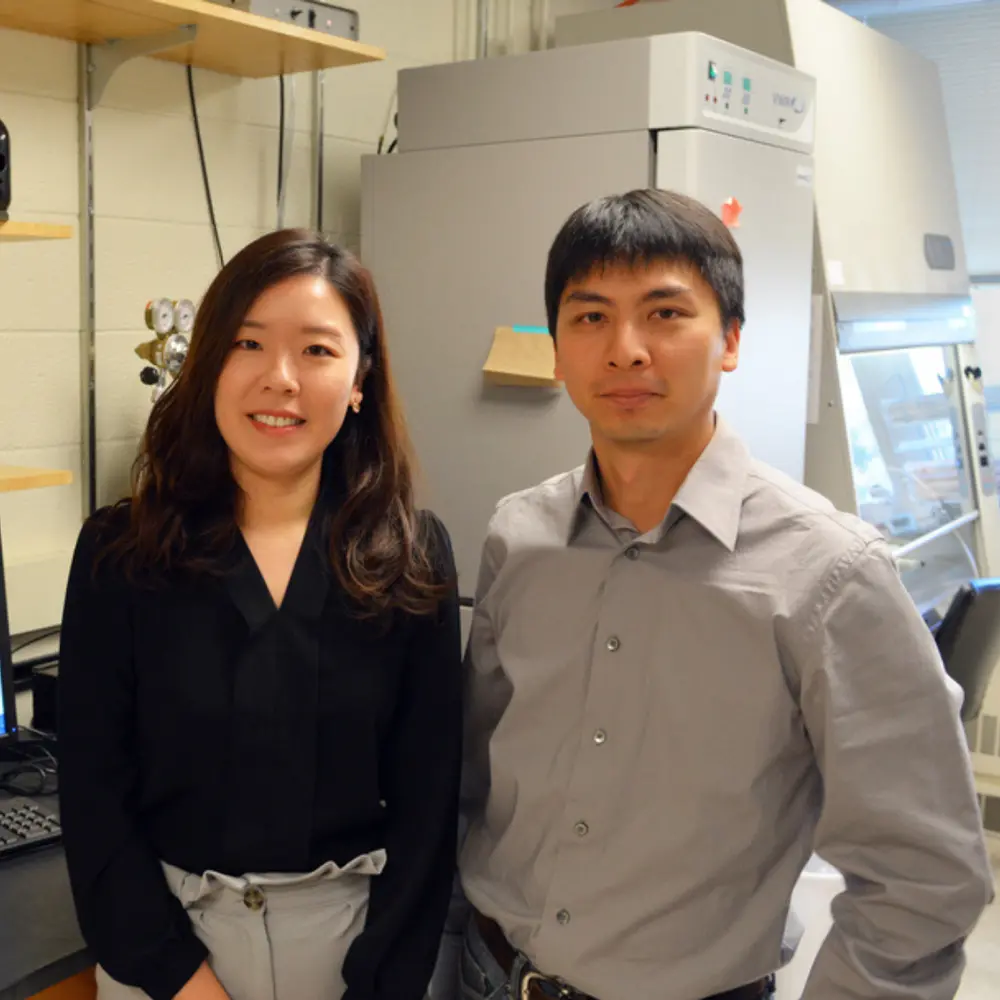
Group 1 metabotropic glutamate receptors (Gp1 mGluRs) are essential for neuroplasticity, neurodevelopment and cognition, but chronically active Gp1 mGluRs has been linked to many pathologic conditions including epilepsy and autism spectrum disorders. To characterize the effects of chronically active Gp1 mGluRs on neuroplasticity, recent graduate students Dai-Chi Liu, Stephanie Soriano and their colleagues in Molecular and Integrative Physiology Assistant Professor Nien-Pei Tsai’s lab revealed an unconventional signaling pathway, mediated by the tumor suppressor p53, when Gp1 mGluRs are chronically stimulated in cortical neurons. They further showed that this p53-dependent signaling pathway is necessary to maintain network activity and stability when Gp1 mGluRs are chronically stimulated. These results suggest distinct effects following acute versus chronic activation of Gp1 mGluRs and could provide insights into constitutively active Gp1 mGluRs observed in many neurologic and psychiatric disorders.
This study is supported by grants from National Institutes of Health, the Brain and Behavioral Research Foundation, and the Illinois Campus Research Board to Assistant Professor Nien-Pei Tsai.
